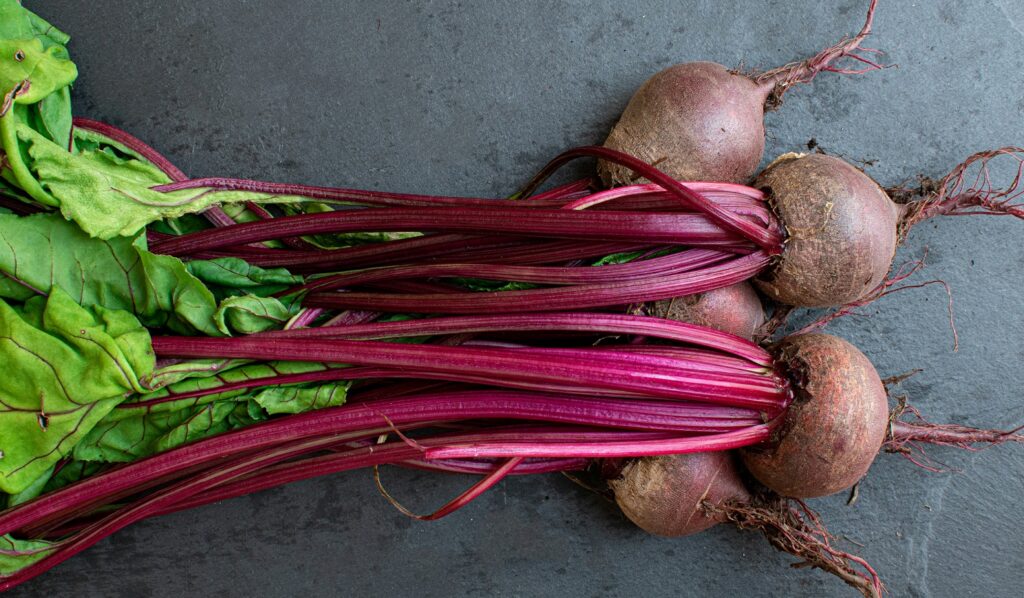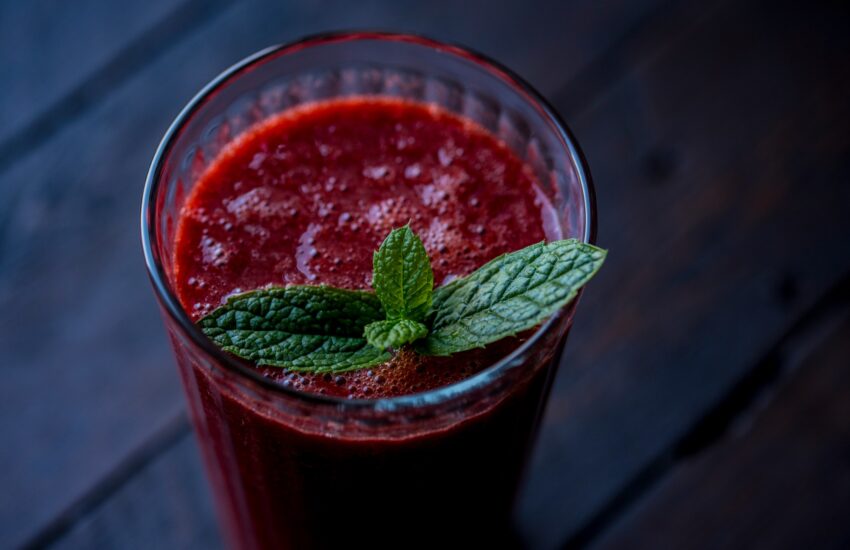Beetroot juice, extracted from the root vegetable known as beetroot or beet, has gained popularity as a health-promoting beverage due to its rich nutrient profile and potential health benefits. This comprehensive exploration delves into the multifaceted advantages of beetroot juice, examining its nutritional composition, scientific evidence supporting its benefits, and practical considerations for incorporating it into a healthy lifestyle. Mohit Tandon from Burr Ridge suggested some of the Health Benefits of Beetroot Juice.
1. Nutritional Profile of Beetroot Juice
1.1 Vitamins
- Vitamin C: Beetroot juice is a significant source of vitamin C, an essential nutrient known for its antioxidant properties. Vitamin C supports the immune system, promotes healthy skin, and aids in the absorption of iron from plant-based sources.
- Vitamin B Complex: Beetroot juice contains various B vitamins, including:
- B6 (Pyridoxine): Important for protein metabolism, cognitive function, and neurotransmitter synthesis.
- Folate (B9): Crucial for DNA synthesis, cell division, and preventing neural tube defects during pregnancy.
1.2 Minerals
- Iron: Beetroot juice provides a good amount of iron, essential for the production of hemoglobin and prevention of anemia. It enhances oxygen transport in the blood and supports overall energy levels.
- Potassium: This mineral plays a key role in maintaining proper fluid balance, supporting cardiovascular health, and regulating blood pressure.
- Magnesium: Essential for muscle and nerve function, bone health, and energy production. Magnesium also helps in regulating blood sugar levels and supporting a healthy metabolism. – Mohit Tandon Burr Ridge
1.3 Antioxidants
- Betalains: These pigments give beetroot its distinctive color and possess powerful antioxidant properties. Betalains help neutralize free radicals, reducing oxidative stress and inflammation.
- Beta-Carotene: A precursor to vitamin A, beta-carotene supports vision, skin health, and immune function.
1.4 Dietary Fiber
- Soluble Fiber: Beetroot juice contains soluble fiber, which helps regulate blood sugar levels and cholesterol. Soluble fiber can also support digestive health by forming a gel-like substance in the intestines.
- Insoluble Fiber: Although beetroot juice contains less insoluble fiber compared to whole beets, it still contributes to digestive health by adding bulk to the stool and promoting regular bowel movements.
2. Health Benefits of Beetroot Juice
2.1 Cardiovascular Health
- Blood Pressure Regulation: Beetroot juice is well-known for its ability to lower blood pressure. The nitrates in beetroot convert to nitric oxide in the body, which relaxes and dilates blood vessels, improving blood flow and reducing hypertension.
- Heart Health: Regular consumption of beetroot juice can enhance endothelial function, reduce arterial stiffness, and lower the risk of cardiovascular diseases. Studies suggest that beetroot juice may improve heart health by reducing levels of LDL cholesterol and triglycerides. – Mohit Tandon Burr Ridge
2.2 Cognitive Function
- Improved Brain Function: The nitrates in beetroot juice enhance blood flow to the brain, which can improve cognitive function and reduce the risk of neurodegenerative diseases. Improved blood circulation supports better brain function and mental performance.
- Memory and Concentration: Research indicates that beetroot juice can improve memory and concentration, particularly in older adults. This may be attributed to increased cerebral blood flow and enhanced neuronal activity.

2.3 Athletic Performance
- Exercise Endurance: Beetroot juice is popular among athletes for its ability to enhance exercise performance. The nitrates in beetroot juice improve oxygen delivery to muscles, increasing endurance and reducing fatigue during physical activity.
- Recovery and Reduced Fatigue: Beetroot juice may help reduce muscle soreness and speed up recovery times due to its anti-inflammatory properties and ability to enhance blood circulation.
2.4 Digestive Health
- Regular Bowel Movements: The fiber in beetroot juice supports digestive health by promoting regular bowel movements and preventing constipation. It helps maintain a healthy gut environment and improves overall digestive function.
- Gut Health: Beetroot juice can nourish beneficial gut bacteria, supporting a balanced microbiome and contributing to overall gut health.
2.5 Liver Health
- Detoxification: Beetroot juice supports liver function by enhancing the liver’s detoxification processes. The betalains in beetroot juice help in the elimination of toxins and reduce oxidative stress in the liver.
- Liver Function: Regular consumption of beetroot juice may improve liver function, protect against liver damage, and support overall liver health.
2.6 Immune System Support
- Antioxidant Protection: The antioxidants in beetroot juice, including vitamin C and betalains, help protect cells from oxidative damage and support a healthy immune system.
- Anti-inflammatory Effects: Beetroot juice has anti-inflammatory properties that can reduce inflammation throughout the body, supporting overall immune health and potentially reducing the risk of chronic diseases.
2.7 Weight Management
- Low-Calorie Option: Beetroot juice is low in calories and can be a beneficial addition to a weight management plan. Its nutrient density and low caloric content make it a suitable choice for those looking to maintain or lose weight.
- Satiety: The fiber content in beetroot juice can contribute to a feeling of fullness, potentially reducing overall calorie intake and supporting weight management.
2.8 Skin Health
- Anti-Aging: The antioxidants in beetroot juice can help reduce signs of aging by protecting the skin from oxidative stress and supporting collagen production.
- Complexion Improvement: Beetroot juice may improve skin tone and promote a healthy complexion due to its high vitamin C content and detoxifying properties.
2.9 Blood Health
- Anemia Prevention: Beetroot juice can help prevent anemia by providing iron and improving red blood cell production. It supports overall blood health and enhances oxygen transport in the body.
- Improved Oxygen Transport: Increased nitric oxide levels from beetroot juice enhance the efficiency of oxygen transport in the blood, which can improve overall energy levels and physical performance.
3. Scientific Research and Evidence
3.1 Clinical Studies
- Blood Pressure: Numerous studies have demonstrated that beetroot juice can significantly lower blood pressure due to its nitrate content. Research shows that regular consumption of beetroot juice can lead to long-term reductions in blood pressure.
- Athletic Performance: Clinical trials have shown that beetroot juice can improve exercise performance and endurance in athletes. Studies indicate that beetroot juice enhances stamina, reduces fatigue, and improves overall physical performance.
3.2 Mechanisms of Action
- Nitrate Conversion: The conversion of dietary nitrates to nitric oxide is a key mechanism behind many of the health benefits of beetroot juice. Nitric oxide relaxes blood vessels, improves blood flow, and supports cardiovascular health.
- Antioxidant Activity: The antioxidant properties of betalains and vitamin C play a crucial role in protecting against oxidative damage, reducing inflammation, and supporting overall health.
4. How to Incorporate Beetroot Juice into Your Diet
4.1 Preparation Methods
- Fresh Juice: Extract juice from fresh beetroots using a juicer or blender. Fresh beetroot juice retains the most nutrients and offers the highest health benefits.
- Commercial Juices: Store-bought beetroot juices are convenient but may contain added sugars or preservatives. Choose organic or minimally processed options to maximize health benefits.
4.2 Recipe Ideas
- Smoothies: Blend beetroot juice with fruits like apples, berries, and bananas for a nutritious smoothie. Adding greens like spinach or kale can further enhance the nutrient profile.
- Cocktails and Mocktails: Use beetroot juice as a base for healthy cocktails and mocktails. Combine it with citrus fruits, herbs, and sparkling water for a refreshing and nutritious beverage.
4.3 Serving Suggestions
- Daily Consumption: Aim to drink a moderate amount of beetroot juice daily or several times a week to enjoy its health benefits. Incorporate it as part of a balanced diet and healthy lifestyle.
- Varied Diet: Incorporate beetroot juice alongside a variety of other fruits and vegetables to ensure a diverse range of nutrients and health benefits.
5. Potential Risks and Considerations
5.1 Possible Side Effects
- Beeturia: Some individuals may experience beeturia, a harmless condition where urine turns red or pink after consuming beetroot juice. This is a normal reaction and is not cause for concern.
- Gastrointestinal Issues: Excessive consumption of beetroot juice may cause digestive issues such as bloating or diarrhea in sensitive individuals. Moderation is key to avoiding gastrointestinal discomfort.
5.2 Interaction with Medications
- Blood Pressure Medications: If you are on medication for blood pressure, consult your healthcare provider before increasing beetroot juice intake, as it may amplify the effects of these medications.
- Kidney Health: Individuals with kidney conditions should be cautious about high potassium intake from beetroot juice. Consult a healthcare professional if you have concerns about potassium levels.
5.3 Quality and Purity
- Organic Options: Choose organic beetroot juice to avoid exposure to pesticides and chemicals. Organic options are often less processed and retain more nutrients.
- Additives: Opt for juices without added sugars, artificial flavors, or preservatives. Check the ingredient list to ensure you are getting a pure and nutritious product.
6. Conclusion
Beetroot juice is a nutrient-dense beverage with a wide range of health benefits, including support for cardiovascular health, cognitive function, athletic performance, and digestive health. Its rich content of vitamins, minerals, and antioxidants makes it a valuable addition to a balanced diet. However, it is important to consume beetroot juice in moderation and be mindful of potential interactions with medications and individual health conditions. By incorporating beetroot juice into a varied and balanced diet, individuals can enjoy its numerous health benefits and contribute to overall.
